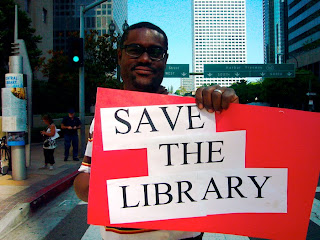Every time I drive down El Paso I spot a profusion of morning glories so glorious that I screech to a halt just to look at them, at the same time reaching for my camera, which I've inevitably left at home. And the inability to capture this beauty reminds me of the title poem in Robert Bly's small book of poems, The Morning Glory.
So this morning I remembered to bring my camera, and when I got home I searched my book shelves and found the book, but then the weirdest thing: when I looked for the morning glory poem it had totally disappeared. I thumbed through my yellowed edition at least three times before I realized I must have torn it out for some reason—to send to a friend, to pin up on a dorm room wall, to... to... what? What did I do with that poem so many years ago? I looked one more time, this time very slowly, and discovered I'd copied it on the back of the title page, but without a title, without proper punctuation, just the poem in dark purple ink. The poem in its original form has been lost to me, but here's what I wrote down, close enough I'd like to think to Bly's original intention:
"There's an old occult saying: whoever wants to penetrate more deeply into the invisible has to penetrate more deeply into the visible.
All through Taoist and "curving lines" thought there is the idea that our disasters come from letting nothing live for itself, come from the longing we have to pull everything even friends into ourselves, and not let anything alone.
When we first sense that a pine tree really doesn't need us—we feel fearful and depressed. The second time we sense it, we feel joyful.
Basho"s wonderful poem goes:
The morning glory—
another thing
that will never be my friend."
~~~
Finally, some good news in the paper (besides Lola the missing parrot being found!). And because of this good news, I'm taking inspiration from outwalkingthedog's "Bird Neck Appreciation Day," and proclaiming this day, "Eat a Bowl of Kellogg's Cereal Day!" (doesn't quite have the same ring, does it?)
Eat a Bowl of Kellogg's Cereal Day!
As reported in the LA Times yesterday, the W.K. Kellogg Foundation awarded Cal Poly Pomona a $42 million dollar grant to increase its enrollment of "first generation college students, recently emancipated foster youth, military veterans and under represented populations of California." How cool is that? Kudos to the foundation—whose slogan is "Helping Communities Stand up for Children"—for realizing the state cannot survive without an educated populace, inclusive of all, especially immigrant children, who make up the bulk of first in their families to go to college.
A few years ago, before Green Dot Charter School took over Locke High School in South Central, I helped out the college counselor, a woman by the name of Regina Risi. She needed someone to edit students' personal essays, part of the application process to UCs and State colleges. She expected each senior to apply. She led them, or rather, dragged them through the often tedious and difficult steps to turn in a college application. It wasn't easy. Many of them felt college wasn't necessary because they already had jobs (i.e., at the corner grocery store or an uncle's auto repair shop), or they didn't have the needed support from family members to leave home; in fact, it was surprising how little support, and I'm not just talking money, they had. There was a lot of fear —fear about what was out there beyond their neighborhood (many students had never traveled beyond the hood). For most, they would be the first in their families to graduate high school.
But Risi wouldn't take no for an answer; she worked with each student above and beyond what was expected of a teacher at Locke, which as we know from LAUSD's failed attempts at control, wasn't much. And that year the results of Risi's hard work bore fruit: 6-8 students were accepted into UCs, including UCLA, Berkeley and Santa Barbara, twice as many got into Cal States, and that many more into community colleges. So along with the foundation, here's to Regina, wherever she is, who deserves an award too.
Regina Risi, college counselor, with her son Sammy





















